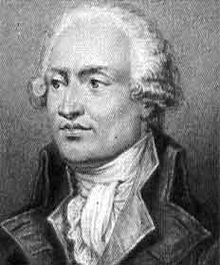|
Different uses for voting
need different types of voting. |
 |
Condorcet Quotes |
 |

|
The evolution of democracy speeds up during eras such as The Enlightenment, when many people rejected blind faith, obedience, and ideology for the hard mental work of rationalism, skepticism and empiricism. Here is one outstanding example. |
The Marquis de CondorcetBorn in 1743, the Marquis de Condorcet became an eminent mathematician, elected secretary of the Academy of Sciences and a member of the French Academy. During the French Revolution he was elected to represent Paris in the Legislative Assembly and became its secretary. He advocated women's suffrage, the separation of church and state, state-supported education, and the abolition of slavery. He was chief author of the Address to the European Powers, and the declaration calling for suspension of the King and summoning of the National Convention -- to which he offered a constitution supported by the moderate Girondins. The aggressive Jacobins defeated that constitution and outlawed Condorcet for his forthright advocacy of political moderation. In 1794 he was arrested and in two days he was dead, perhaps from poison.
|

“Wholly a man of the Enlightenment, an advocate of economic freedom, religious toleration, legal and educational reform, and the abolition of slavery, Condorcet sought to extend the empire of reason to social affairs. Rather than elucidate human behaviour, as had been done thus far, by recourse to either the moral or physical sciences, he sought to explain it by a merger of the two sciences that eventually became transmuted into the discipline of sociology.”
H. B. Acton “No criterion for evaluating voting systems appears more persuasive than that by the Marquis de Condorcet.”
“All variants of democratic theory endow a Condorcet winner with a certain degree of legitimacy, and such a mandate is no doubt a vital ingredient in the subsequent career of the winner.”
Chamberlin, Cohen, and Coombs, 1984 “He is known for the Condorcet Paradox which points out that it is possible that a majority prefers option A over option B, a majority prefers option B over option C, and yet a majority prefers option C over option A.” (A mathematician would say "majority prefers" is not transitive.)
|

Sometimes no candidate can pass all of her pairwise tests. Such ties can be broken by many rules including the Instant Runoff rule shown next 

| |||||
|---|---|---|---|---|---|
| Electoral Systems | Legislative Systems | ||||
Reps
| Council
Condorcet chair plus PR reps | Policy

Condorcet and rules of order | Projects
| Budgets
| |

|
|

 Accurate Democracy
Accurate Democracy 


